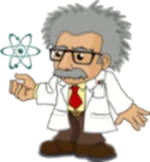Consecutive 69904
The three numbers that make three consecutive members of an arithmetic sequence have a sum of 60 and a product of 7500. Find these numbers.
Correct answer:

Tips for related online calculators
Are you looking for help with calculating roots of a quadratic equation?
Do you have a linear equation or system of equations and are looking for its solution? Or do you have a quadratic equation?
Do you have a linear equation or system of equations and are looking for its solution? Or do you have a quadratic equation?
You need to know the following knowledge to solve this word math problem:
Related math problems and questions:
- Members
 A geometric sequence with six members has the sum of all six members equal to 63; the sum of the even members (that has an even index) has a value of 42. Find these members.
A geometric sequence with six members has the sum of all six members equal to 63; the sum of the even members (that has an even index) has a value of 42. Find these members. - Sequences AP + GP
 The three numbers that make up the arithmetic sequence have the sum of 30. If we subtract from the first 5, the second 4, and keep the third, we get the geometric series. Find AP and GP members.
The three numbers that make up the arithmetic sequence have the sum of 30. If we subtract from the first 5, the second 4, and keep the third, we get the geometric series. Find AP and GP members. - AP - consecutive members
 In the arithmetic sequence, a1 = 4.8, d = 0.4. How many consecutive members, starting with the first, need to be added so that the sum is greater than 170?
In the arithmetic sequence, a1 = 4.8, d = 0.4. How many consecutive members, starting with the first, need to be added so that the sum is greater than 170? - Find two
 Find two consecutive natural numbers whose product is one larger than their sum. Searched numbers are expressed by a fraction whose numerator is the difference between these numbers, and the denominator is their sum.
Find two consecutive natural numbers whose product is one larger than their sum. Searched numbers are expressed by a fraction whose numerator is the difference between these numbers, and the denominator is their sum.
- Five element
 The geometric sequence is given by quotient q = 1/2 and the sum of the first six members S6 = 63. Find the fifth element a5.
The geometric sequence is given by quotient q = 1/2 and the sum of the first six members S6 = 63. Find the fifth element a5. - Sequence:
 Sequence: 4,10,40,400,16,000,______, ________ Find these two members.
Sequence: 4,10,40,400,16,000,______, ________ Find these two members. - AS sequence
 In an arithmetic sequence is given the difference d = -3 and a71 = 455. a) Determine the value of a62 b) Determine the sum of 71 members.
In an arithmetic sequence is given the difference d = -3 and a71 = 455. a) Determine the value of a62 b) Determine the sum of 71 members.
